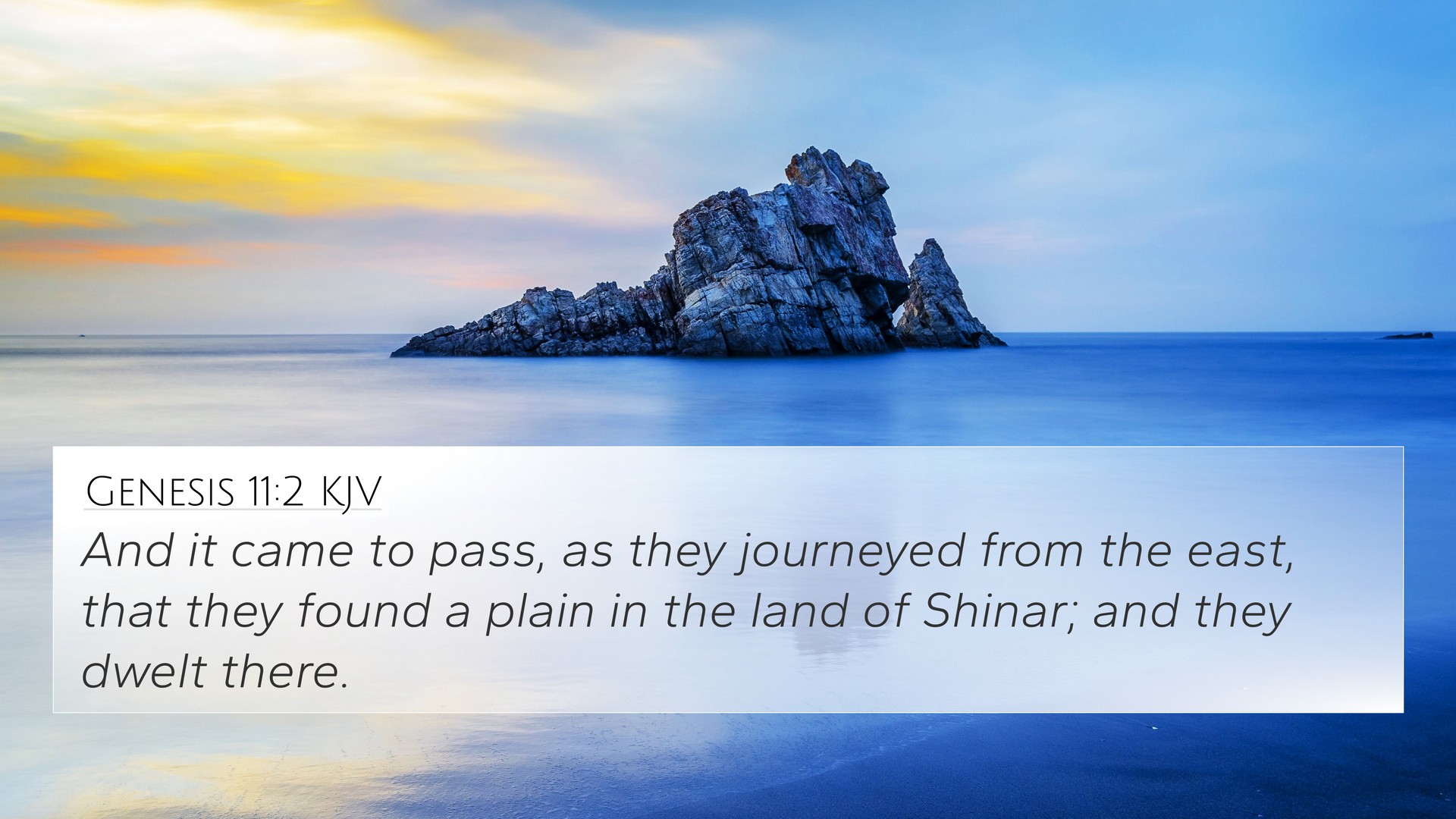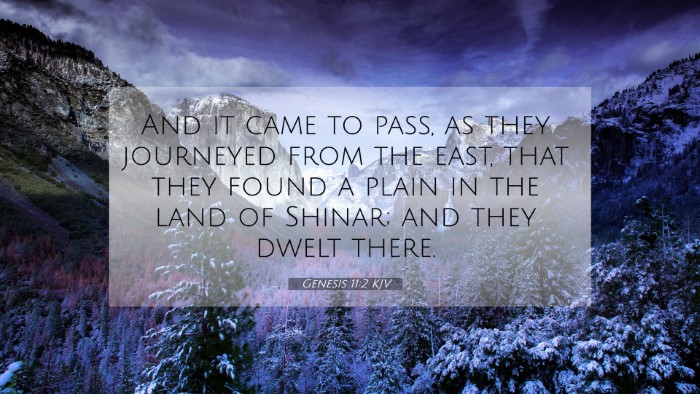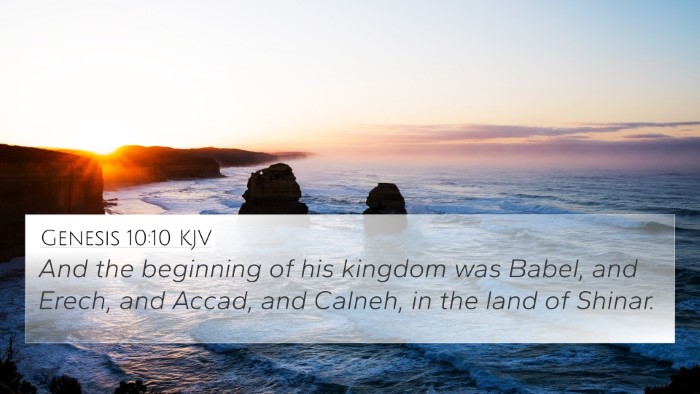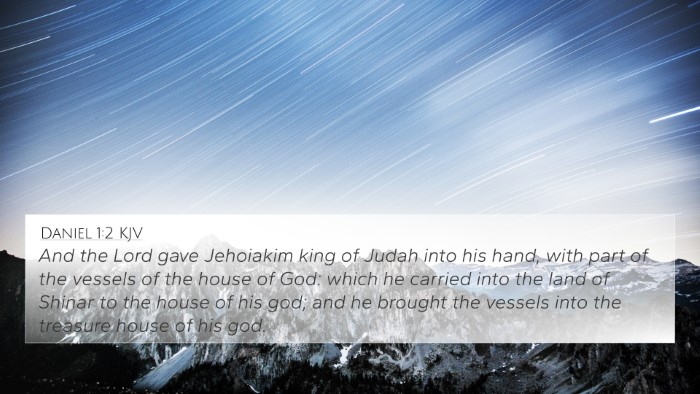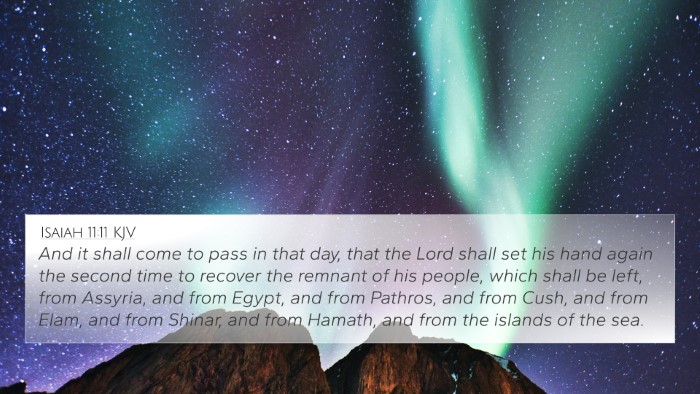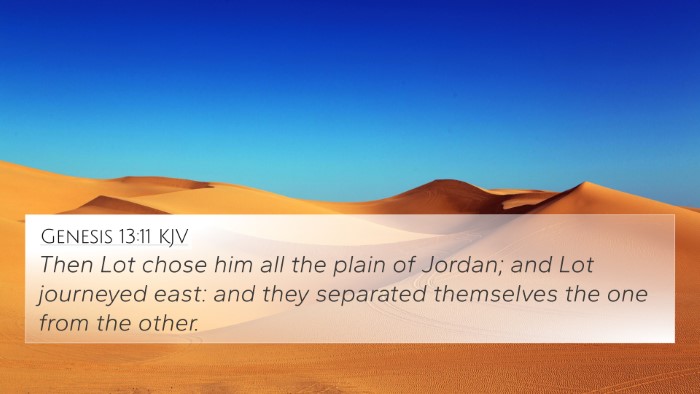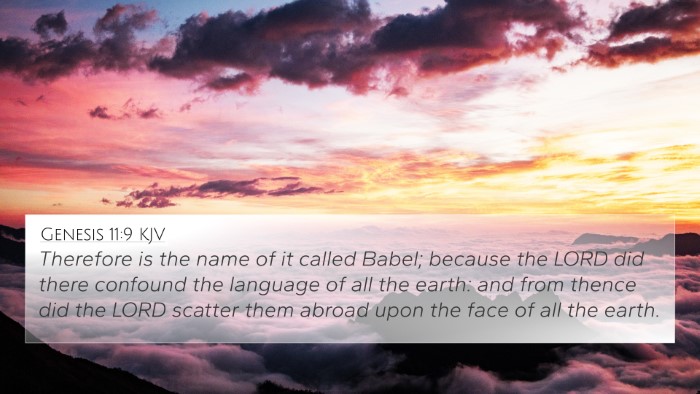Genesis 11:2 - Meaning and Interpretation
Verse: "And it came to pass, as they journeyed from the east, that they found a plain in the land of Shinar; and they dwelt there."
Overview
This verse marks a significant moment in the biblical narrative, introducing the account of the Tower of Babel. The location of Shinar is crucial as it represents human ambition and the attempt to reach the heavens through collective effort.
Commentary Insights
Matthew Henry: Henry emphasizes the unity of the people as they sought to make a name for themselves. This reflects humanity's tendency toward pride and self-sufficiency, demonstrating a desire to establish security and significance apart from God.
Albert Barnes: Barnes points out the geographical significance of Shinar, often associated with Babylon. He notes the implications of their migration as a search for a place that can support their lofty aspirations and ambitions, indicating a turning away from God's designated plans.
Adam Clarke: Clarke adds that this verse illustrates the power of human cooperation. He comments on how their collective journey signifies a step toward civilization but also foreshadows the consequences of their hubris, leading to God's intervention and the scattering of nations.
Thematic Connections
- Human Ambition: Genesis 11:2 reflects humanity's collective ambition, relating to James 4:6, where God resists the proud.
- Unity and Division: The unity mentioned here connects with Acts 2:1-4, where unity is celebrated through the Holy Spirit.
- Search for Identity: This quest for a name parallels the search for identity found in Psalm 127:1, emphasizing dependence on God for success.
- Divine Intervention: The outcome of their efforts ties to Genesis 11:6, where God acknowledges their unity but decides to intervene.
- Geographical Significance: The land of Shinar points to the roots of evil found in Revelation 17:5, where Babylon symbolizes rebellion against God.
- Consequences of Sin: Their ambition has echoes in Romans 1:21-23, where humanity's desire to worship creation leads to their downfall.
- God’s Sovereignty: The migration illustrates God’s sovereign plan, connecting with Proverbs 21:1, demonstrating that God can direct the heart of humanity towards His will.
Cross-Referencing Biblical Texts
Genesis 11:2 can be cross-referenced with the following verses for deeper understanding:
- Genesis 10:10: Discusses the beginnings of the kingdom of Nimrod in the land of Shinar.
- Deuteronomy 8:11-14: Warns against forgetting the Lord when prospering in the land.
- Isaiah 14:13-14: Looks at prideful ambition similar to the intentions of building the Tower of Babel.
- Matthew 5:14: Contrasts the desire for self-promotion with being a light to the world.
- Revelation 14:8: Alludes back to Babylon as a metaphor for rebellion against God.
- 1 Peter 5:5: Offers guidance on humility, contrasting human pride in Babel.
- John 17:21: Highlights a divine unity that opposes the fragmentation seen after Babel.
Practical Applications
When studying Genesis 11:2, consider how our endeavors align with divine purposes. Reflect on the following:
- Human Efforts: Are they fueled by pride or a desire to serve God?
- Unity vs. Division: In what ways does our society mirror the cohesive yet misguided goals of Babel?
- God’s Guidance: How can we seek God's leadership in our aspirations?
Conclusion
Ultimately, Genesis 11:2 serves as a reminder of the balance between human ambition and divine sovereignty. It challenges believers to examine their motivations and align their goals with God's plans, providing rich soil for further study and reflection.
